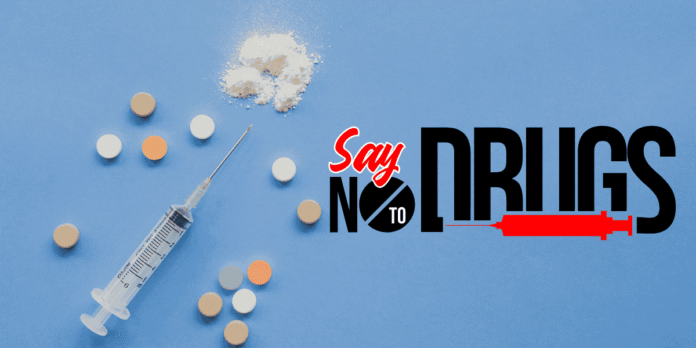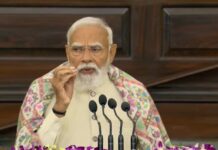The Pokkadera Panchayat Hall in North & Middle Andaman became the centre of public engagement as residents gathered for a Jansunwai meeting on August 16, where community members voiced their concerns directly to senior police officers. Chaired by Superintendent of Police (District) Shweta K Sugathan, the meeting drew over 60 participants, including pradhans, up-pradhans, panchayat members, and residents from surrounding villages.
The Jansunwai format, which emphasises open dialogue between authorities and citizens, gave residents the opportunity to highlight pressing issues affecting daily life. The discussions quickly revealed two recurring concerns, the growing menace of drug abuse among youth and the problem of drunken driving on local roads. Both issues, participants said, were undermining community safety and wellbeing.
Residents spoke about the availability of narcotics in some areas, alleging that young people were increasingly being drawn into substance use. Several panchayat members stressed the need for stricter monitoring and action against those involved in the supply chain. They pointed out that addiction was not only a health concern but also a social issue, disrupting family life and creating tensions within communities.
Drunken driving emerged as the second major issue raised during the session. With narrow village roads often shared by vehicles, pedestrians, and livestock, participants said reckless driving under the influence posed serious risks. Some attendees shared incidents of near accidents and injuries, calling for stricter enforcement of traffic laws and regular road safety checks.
Responding to the concerns, SP Shweta K Sugathan assured the gathering that the police would intensify efforts to address both drug abuse and traffic violations. She emphasised that while enforcement was important, prevention and awareness would be equally critical. Drug-free and safe communities, she noted, could not be achieved by police action alone but required the involvement of every individual in society.
To this end, the Superintendent of Police conducted an awareness session during the Jansunwai, underlining the harmful effects of substance abuse and the dangers of unsafe driving. She urged residents to work collectively in reporting suspicious activities, guiding the youth, and setting examples of discipline. The call for shared responsibility resonated with the participants, many of whom acknowledged the need for parental and community involvement in addressing such challenges.
The Jansunwai also served as a platform for strengthening trust between the police and the public. By hearing grievances directly and providing immediate feedback, the officers aimed to bridge gaps that often arise between enforcement agencies and citizens. The presence of SDPO Diglipur, Ankesh Yadav, and SHO Mayabunder further reinforced the seriousness of the exercise, assuring residents that their voices were being heard at multiple levels of the district police.
While the primary focus remained on drugs and traffic safety, the gathering also touched upon other local concerns. Participants discussed the need for better coordination during emergencies, faster response times to complaints, and increased patrolling in vulnerable areas. The officers assured that inputs from the meeting would be factored into future policing strategies, reflecting the adaptive approach of community-oriented policing.
For many villagers, the meeting provided a rare opportunity to engage face-to-face with senior officers. In remote and scattered regions like North & Middle Andaman, where communication gaps often exist, forums like Jansunwai enable citizens to bypass bureaucratic delays and place their concerns directly before decision-makers.
The turnout itself was an indicator of both interest and concern. Over 60 participants, including elected representatives, took part in the discussions, reflecting a sense of shared responsibility for the wellbeing of the region. Community leaders highlighted the importance of making such interactions regular, noting that one-off meetings were not enough to tackle deeply rooted issues like substance abuse.
The Jansunwai format has been increasingly used in recent years as a tool for participatory governance in the Andaman and Nicobar Islands. By allowing citizens to raise grievances and suggestions in an open forum, it strengthens democratic engagement and accountability. For the police, it provides direct insight into the community’s perception of safety, enabling them to recalibrate strategies accordingly.
The August 16 meeting demonstrated both the challenges and the opportunities inherent in this model. On the one hand, the concerns raised revealed that issues of drugs and traffic safety are becoming more urgent in the region. On the other hand, the constructive tone of the dialogue showed that citizens are willing to cooperate with enforcement agencies when given the platform.
As the meeting concluded, the message was clear: tackling social issues like drug abuse and unsafe driving requires more than enforcement. It demands collaboration between authorities and residents, with each playing an active role. For the community of Pokkadera, the Jansunwai was not just a meeting but a step towards reclaiming safety and discipline in daily life.
With commitments made and assurances given, the focus now shifts to how effectively the concerns raised will be acted upon in the coming months. For residents, the measure of success will lie in visible changes on the ground, fewer instances of drug use, safer roads, and a stronger sense of security. For the police, the challenge will be to sustain engagement and follow through on promises made in the open forum.
The Jansunwai at Pokkadera thus underscored both the potential and the responsibility of participatory policing. In a district where community ties run deep, the event reaffirmed that safety and progress depend not only on enforcement but on the collective will of the people.





